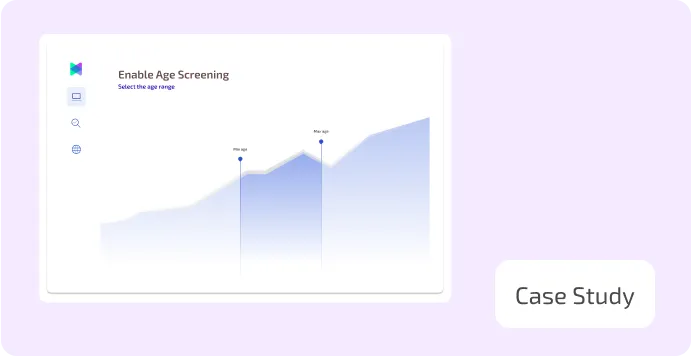.webp)
Published on
June 3, 2025
Hawala System: Economic Analysis & Regulatory Dynamics
In this story

Accelerate AML Compliance: Meet Regulatory Demands with 80% Less Setup Time
.svg)
.svg)
Exploring the mechanics of Hawala prompts the question: "What is Hawala?”. Hawala is an unofficial and customary technique for sending money without the need for physical transportation. Its name is derived from the Arabic word for "transfer" or "wire."
For centuries, the hawala system has remained in practice due to its speed, efficiency, and reliability. It's commonly employed for transferring funds among family members, friends, and business partners. Additionally, it serves as a vital means of sending money to individuals in different countries who may lack access to formal banking services.
In this article, we will explore different aspects of the Hawala system.
Behind the Scenes of Hawala System: How it Works?
The Hawala system, utilized across various regions globally, operates outside traditional banking channels, relying on trust among individuals or networks of brokers known as Hawaladars.
Transactions primarily serve immigrants supporting families or businesses paying suppliers abroad. However, the system's lack of regulation and paper trail pose challenges in tracking money flows and can lead to potential misuse. Here's how it works:
1) A person in Country A wishing to send money to someone in Country B approaches a local Hawaladar in Country A.
2) The sender gives the money along with a fee to the local Hawaladar, providing recipient details and the agreed exchange rate.
3) The Hawaladar in Country A contacts another in Country B, sharing transaction details.
4) The Hawaladar in Country B pays the recipient the agreed amount in the local currency.
Comply quickly with local/global regulations with 80% less setup time
.svg)
.svg)
Making Money in the Shadows: How Do Hawala Providers Profit?
Hawala providers, also known as Hawaladars, earn money through various means within the informal system. Here's how they typically make money:
1. Transaction Fees
Hawaladars charge a fee for facilitating money transfers. This fee varies depending on factors such as the amount being transferred, the destination, and the level of trust between the parties involved. The fee is usually deducted from the total amount being transferred.
2. Exchange Rate Margin
They often make money by offering exchange rates slightly different from the official rates. They buy currency at a lower rate and sell it to the recipient at a higher rate, pocketing the difference as profit.
3. Commissions
In some cases, Hawaladars receive commissions or kickbacks from third parties, such as currency traders or businesses, for directing customers their way or for facilitating larger transactions.
4. Investments
Some Hawaladars may invest the funds they hold temporarily before settling transactions. They might earn returns on these investments, although this also carries risks.
5. Ancillary Services
Some Hawala providers offer additional services such as bill payments, currency exchange, or even informal lending. They charge fees for these services, adding to their revenue streams.
Inside the Hawala System: 8 Unique Features
The Hawala system boasts distinct features setting it apart from traditional banking. These include:
1. Confidentiality: In Hawala transactions, participants prioritize confidentiality and anonymity. Unlike traditional banking, where extensive documentation and identity verification are required, Hawala allows individuals to transfer funds without disclosing personal information. This discretion ensures privacy and confidentiality, appealing to individuals who prefer to keep their financial transactions discreet.
2. Trust Dependency in the Hawala network: Central to the Hawala system is the concept of trust. Transactions are facilitated based on trust between participants, often rooted in personal relationships, familial ties, or longstanding connections within the Hawala network. This trust allows for seamless transactions without the need for formal contracts or legal agreements, fostering reliance and confidence in the system.
3. Adaptability: Unlike formal banking procedures, Hawala transactions are highly flexible and adaptable to the needs of participants. They can occur swiftly and without the bureaucratic hurdles often associated with traditional financial institutions. This flexibility enables Hawala to cater to diverse needs and circumstances, accommodating various transaction sizes and purposes.
4. Global Accessibility: The Hawala system operates across borders, enabling individuals to conduct transactions internationally with relative ease. This global reach makes it particularly advantageous for migrant workers, expatriates, and individuals with international ties who need to send money to their home countries or support family members abroad. Hawala's accessibility transcends geographical boundaries, facilitating seamless cross-border transactions.
5. Affordability: Hawala transactions typically incur lower fees compared to traditional banking services. With fewer overhead costs and no intermediary banks involved, Hawala providers can offer competitive exchange rates and minimal transaction fees. This affordability makes Hawala an attractive option, especially for individuals who need to transfer small sums of money or for businesses engaged in international trade seeking cost-effective payment solutions.
6. Efficiency: Transactions through the Hawala system are often expedited, ensuring swift fund transfers. Unlike traditional banking, where transactions may take several days to process, Hawala transactions can be completed within hours or even minutes. This quick turnaround time is advantageous in urgent situations or when immediate access to funds is required, making Hawala a preferred choice for time-sensitive transactions.
7. Limited Regulation: Hawala operates largely outside regulatory frameworks, offering flexibility but also raising concerns about oversight and accountability. Unlike formal financial institutions that are subject to stringent regulatory requirements and compliance measures, Hawala transactions are conducted informally, without regulatory supervision. While this lack of regulation allows for greater flexibility and autonomy, it also poses risks such as money laundering, terrorist financing, and fraud.
Read more about Fraud Detection with Machine Learning & Artificial Intelligence in 2024
8. Community Integration: The Hawala system is deeply embedded within certain communities, serving as a vital financial lifeline for individuals who may have limited access to formal banking services. Hawala providers often have longstanding ties to their communities and are trusted members of these social networks. This integration fosters a sense of solidarity and mutual support within these communities, strengthening social bonds and providing financial assistance to those in need.
Evolution and Applications of Informal Funds Transfer Systems
Since Hawala system operates outside of conventional banking channels and relies on trust and personal relationships between individuals or networks of brokers known as Hawaladars, it is considered an Informal Funds Transfer (IFT) system. In this section, we will explore the origin and modern uses of IFTs.
Origin
Informal Funds Transfer (IFT) systems have existed for centuries, with their roots tracing back to ancient times when merchants and traders relied on informal networks to transfer funds across long distances. One of the earliest documented forms of informal funds transfer was the Hawala system, which originated in the Middle East and South Asia during the medieval period. Hawala, based on trust and personal connections, facilitated the movement of money without physical currency exchange, laying the foundation for modern IFT systems.
Modern Uses: Hawala System Examples
Today, IFT systems have evolved to meet the needs of a globalized world, offering efficient and accessible means of transferring funds across borders. Some of the modern uses and Hawala system examples include:
1. Remittances: One of the primary modern uses of IFT systems is for remittances, where individuals living and working abroad send money back to their home countries to support their families or for investment purposes. IFT systems provide a cost-effective and convenient way for migrants to send money to their loved ones without relying on traditional banking channels.
2. International Trade: Businesses engaged in international trade often utilize IFT systems to make payments to overseas suppliers or to receive payments from foreign customers. IFT systems offer faster and more cost-effective transactions compared to traditional banking methods, making them ideal for businesses involved in cross-border trade.
3. Financial Inclusion: IFT systems play a crucial role in promoting financial inclusion by providing access to financial services for individuals who may not have access to traditional banking services. In regions where formal banking infrastructure is limited or inaccessible, IFT systems serve as an essential tool for conducting financial transactions, saving money, and accessing credit.
4. Emergency Aid and Humanitarian Assistance: During times of crisis or humanitarian emergencies, IFT systems are often used to transfer funds quickly to affected areas, providing emergency aid and humanitarian assistance to those in need. IFT systems offer a rapid and efficient means of delivering funds to disaster-stricken regions, enabling relief organizations to respond swiftly to humanitarian crises.
5. Informal Economy: In many parts of the world, especially in developing countries, the informal economy plays a significant role in daily economic activities. IFT systems are commonly used within the informal economy for various purposes, including wage payments, savings, and investment, contributing to the financial resilience of communities and supporting economic growth.
The Impact of Hawala on the Banking Sector
Hawala, as an informal funds transfer system, can have several impacts on the formal banking system:
1. Competition: The existence of Hawala systems may create competition for formal banking institutions, particularly in regions where access to traditional banking services is limited. Individuals and businesses may opt for Hawala due to its convenience, lower costs, and faster transaction speeds, leading to potential loss of customers for banks.
2. Loss of Revenue: Banks may experience a loss of revenue as a result of competition from Hawala systems. Since Hawala transactions often incur lower fees compared to traditional banking services, individuals and businesses may choose to use Hawala instead of relying on banks for international money transfers or other financial services.
3. Regulatory Challenges: The presence of Hawala systems poses regulatory challenges for the formal banking sector. Regulators may struggle to monitor and regulate informal funds transfer systems effectively, leading to concerns about financial stability, money laundering, and terrorist financing. Banks may face increased regulatory scrutiny and compliance costs as a result.
4. Risk of Disintermediation: Hawala systems bypass traditional banking intermediaries, allowing individuals to transfer funds directly without involving banks. This can lead to disintermediation, where banks lose their role as intermediaries in financial transactions, potentially reducing their profitability and relevance in the financial ecosystem.
5. Impact on Financial Inclusion: While Hawala systems can provide access to financial services for individuals who are underserved or excluded from the formal banking sector, they may also hinder efforts to promote financial inclusion. Dependence on informal funds transfer systems may discourage individuals from engaging with formal banking institutions, limiting their access to financial products and services that could benefit them in the long term.
The Legal and Regulatory Landscape of Hawala: An Overview
The legal and regulatory aspects of the informal Hawala system can be quite complex but are essential for ensuring transparency and accountability.
1. Regulatory Framework: Different countries have rules governing money transfer services, including those provided by informal systems like Hawala, but enforcing these rules can be tough.
2. Anti-Money Laundering (AML) and Counter-Terrorist Financing (CTF) Laws: Many places have laws to prevent money laundering and terrorist financing, which also apply to Hawala. These laws might require Hawala operators to register with authorities, check their customers, and report suspicious transactions.
3. Licensing and Registration Requirements: In some countries, Hawala operators need licenses or have to register with regulators to operate legally.
4. Penalties for Non-Compliance: If Hawala operators don't follow the rules or break the law, they can face serious consequences like fines, going to jail, or having their business shut down.
Read more about the Top AML Fines You Should Avoid.
5. International Cooperation: Since Hawala operates across borders, countries need to work together to regulate it effectively. Some places have agreements to share information and help each other regulate Hawala.
6. Challenges and Limitations: Even with regulations, it's hard to monitor informal transactions, and rules can vary between countries. This makes it difficult to control illegal activities and might push Hawala operators to go underground.
7. Balancing Regulation with Financial Inclusion: While it's important to prevent illegal activities, regulations shouldn't make it hard for people to access financial services. Striking a balance between regulation and making sure everyone has access to money transfer services is crucial.
Conclusion
In conclusion, the Hawala system is like a lifeline for many people around the world. It's a simple yet powerful way for families and businesses to send money across borders quickly and securely. While some governments have tried to regulate it, it mostly operates outside formal financial systems. Despite its informal nature and associated risks, Hawala plays a vital role in the global economy, providing benefits while also posing challenges for regulators and formal banks.
Legalizing and regulating Hawala could bring it under official oversight, ensuring transparency, accountability, and adherence to anti-money laundering and counter-terrorism financing laws. This could help mitigate the risks associated with informal financial systems and enhance consumer protection.
Streamline Compliance: Achieve 80% Faster Setup for Fraud Prevention
.svg)
.svg)

How Aseel reduced onboarding time by more than 87% using FOCAL
Learn how FOCAL empowered Aseel to achieve new milestones.
.svg)
.svg)
Mastering Fraud Prevention: A Comprehensive Guide for KSA and MENA Businesses
51% of organizations fell victim to fraud in the last two years, don't be caught off guard, act proactively.
.svg)
.svg)
Featured blog posts
.svg)
AI-Driven Precision in Fraud Risk and AML Compliance
.svg)
.svg)

.svg)
.png)






.webp)




.svg)

_FastestImplementation_Small-Business_GoLiveTime.png)

_HighPerformer_Small-Business_HighPerformer.png)
_Leader_Leader.png)



%20(1).webp)